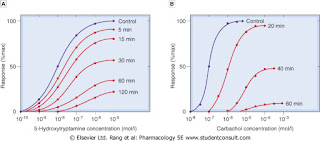Parenteral Dosage Forms in Medicine: A Comprehensive Guide
Parenteral Dosage Forms in Medicine: A Scholarly Exploration
Parenteral dosage forms are essential in the field of pharmaceuticals and medical practice. As a healthcare professional, it's crucial to have a thorough understanding of these intricate formulations. Parenteral dosage forms are used when oral administration is not feasible, effective, or when immediate therapeutic action is necessary. This article will explore the classification, characteristics, clinical applications, and the importance of proper administration techniques and medication safety associated with parenteral dosage forms.
Understanding Parenteral Dosage Forms
Parenteral dosage forms are pharmaceutical formulations designed for direct introduction into the human body, bypassing the complexities of the gastrointestinal tract. This mode of drug administration is vital when a rapid onset of action, precise dosing, or avoidance of digestive enzyme interference is required. Common parenteral routes include intravenous (IV), intramuscular (IM), and subcutaneous (SC) injections.
Advantages of Parenteral Administration
- Rapid Onset of Action
- Immediate therapeutic effects due to rapid drug distribution.
- Precision in Dosage
- Accurate delivery of therapeutic agents.
- Bypassing Gastrointestinal Barriers
- Preservation of drug integrity by avoiding enzymatic degradation.
- Suitability for Non-Compliant Patients
- An alternative for patients unable to take oral medications.
Disadvantages of Parenteral Administration
- Invasiveness
- Use of needles and injections, potentially discomforting.
- Infection Risk
- Improper techniques or equipment may lead to infections.
Classification of Parenteral Dosage Forms
Parenteral dosage forms encompass a diverse array of drug delivery mechanisms, each tailored to specific therapeutic needs and patient considerations. Understanding these classifications is crucial for healthcare professionals to make informed decisions regarding drug administration. Here, we will delve into the various parenteral dosage forms, their attributes, clinical applications, and provide examples:
1. Injections
Injections are a common parenteral dosage form, and they can be further categorized based on their route of administration:
a. Intravenous (IV) Injections
- Characteristics:
- Rapid Onset of Action: IV injections offer the fastest onset of therapeutic action.
- Precision in Dosage: IV injections allow for precise dosing.
- Clinical Applications:
- Antibiotics like vancomycin are often administered via IV injections for rapid treatment of severe infections.
- Anesthetics such as Propofol are used intravenously to achieve precise and rapid sedation during surgery.
b. Intramuscular (IM) Injections
- Characteristics:
- Moderate Release Profile: IM injections provide a slower release compared to IV injections but faster than subcutaneous injections.
- Clinical Applications:
- Vaccines like the influenza vaccine are frequently administered via IM injections to induce a controlled immune response.
- Hormonal therapies like testosterone replacement therapy may be delivered intramuscularly for gradual, sustained release.
c. Subcutaneous (SC) Injections
- Characteristics:
- Slow and Sustained Release: SC injections result in a slow and sustained release of the drug.
- Clinical Applications:
- Insulin is administered subcutaneously for gradual absorption and prolonged action in diabetes management.
- Epinephrine in auto-injectors is administered subcutaneously for the treatment of severe allergic reactions.
2. Infusions
Infusions involve the continuous and controlled delivery of medications and fluids through an intravenous line. They are ideal for drugs that require a constant infusion rate, such as chemotherapy, antibiotics for prolonged therapy, and parenteral nutrition.
- Characteristics:
- Constant and Controlled Delivery: Intravenous infusions provide precise control over the infusion rate.
- Clinical Applications:
- Chemotherapy regimens use intravenous infusions to ensure consistent drug levels during treatment.
- Total parenteral nutrition (TPN) solutions are delivered intravenously to meet nutritional needs.
3. Intradermal
(ID) Injections
Intradermal injections are primarily used for diagnostic purposes, producing a small, raised bump (wheal) on the skin's surface.
- Characteristics:
- Diagnostic Utility: ID injections are primarily used for diagnostic purposes.
- Clinical Applications:
- Tuberculin skin tests (Mantoux test) detect tuberculosis exposure.
- Allergy testing employs intradermal injections to identify allergen sensitivities in patients.
In summary, each parenteral dosage form possesses distinct characteristics supported by scientific evidence. These characteristics inform their clinical applications, ensuring that the most appropriate route and dosage form are chosen to achieve therapeutic objectives while prioritizing patient safety and efficacy.








you may make mistake in word spacing in your article.
ReplyDeleteI want to share with you all here on how I get my loan from Mr Benjamin who help me with loan of 400,000.00 Euro to improve my business, It was easy and swift when i apply for the loan when things was getting rough with my business Mr Benjamin grant me loan without delay. here is Mr Benjamin email/whatsapp contact: +1 989-394-3740, lfdsloans@outlook.com.
ReplyDeleteHello…Content of your blog is awesome. I really liked it. Thanks for sharing this blog. Visit our website for fashion designing institute in up
ReplyDeletewonderfull article..! I really loved reading through this article. If you are looking to open in a big city, you have the option to go for a mega store. If you are interested in this business model, then you can apply for the Patanjali franchise online. To get Patanjali franchise online, apply using the form available on the website.
ReplyDeleteThanks for sharing this great article! That is very interesting I love reading and And its most important for Every Students like this>>>>>>>>>Best M.Sc. Physics University in UP
ReplyDeleteb pharm course fees in uttar pradesh
This comment has been removed by the author.
ReplyDeleteHello…Content of your blog is awesome. I really liked it. Thanks for sharing this blog. Visit our website for top 10
ReplyDeleteBest University for MBA in UP